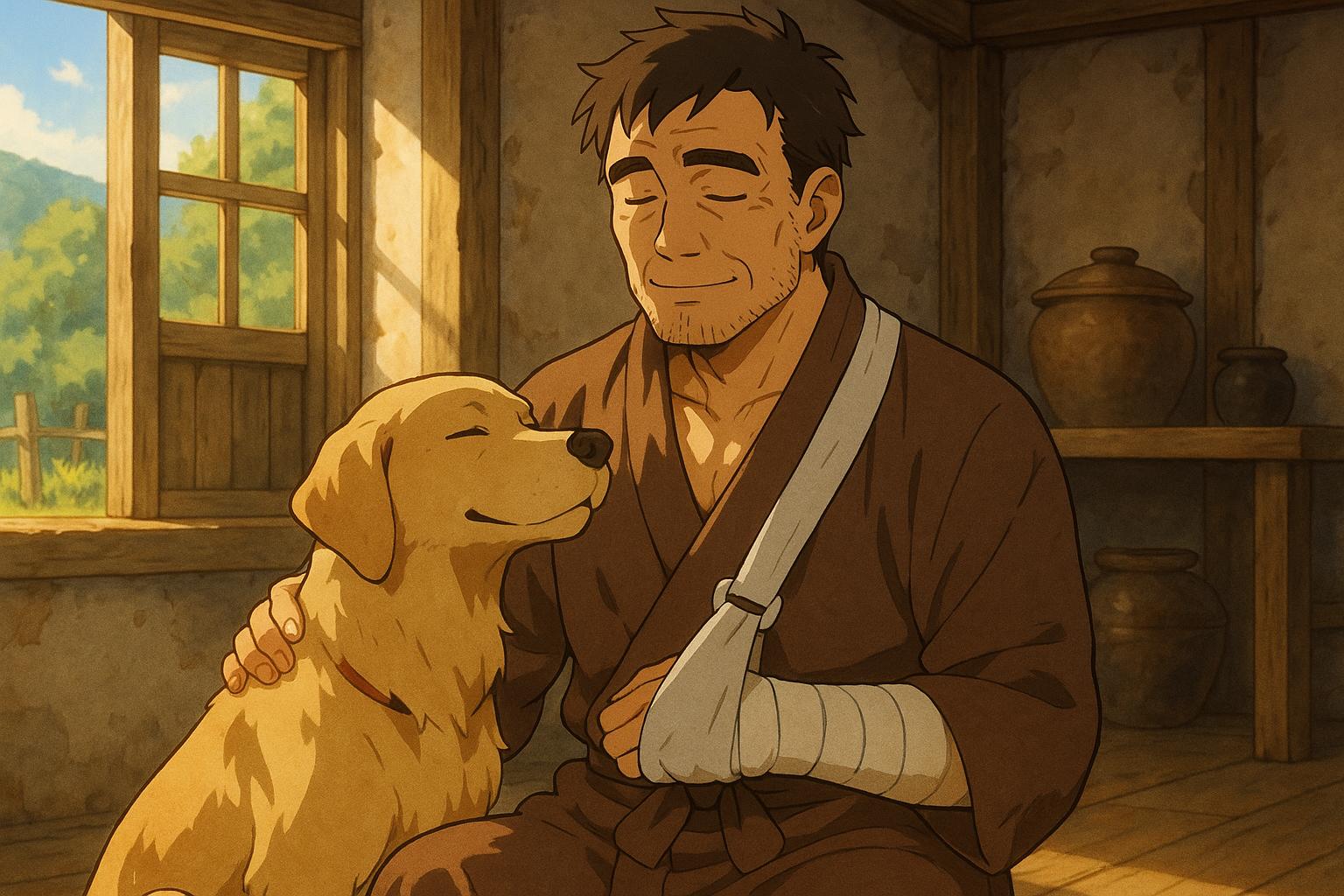Fabien McQuillan offers a glimpse into the realities of adjusting to life in rural Tyrone as he navigates the challenges of a dislocated shoulder while balancing familial responsibilities and personal recovery. In his latest diary entry, he recounts the moment of frustration and unexpected joy that accompanies his injury. Recently treated in A&E, he finds himself at home, navigating the complexities of being a stay-at-home dad while grappling with the limitations imposed by his condition.
As he lounges in his dressing gown, partially recuperated but still feeling the residual discomfort, he becomes aware just how pivotal his role is within the household. His partner, Fionnuala, is a social work manager who bears the financial brunt of their family, allowing Fabien the space to embrace his current status as a caregiver. However, the dynamics shift dramatically when he receives a troubling call from the school regarding an accusation against his daughter, Imogen, which threatens to disrupt their already fragile routine.
Imogen’s situation highlights a broader issue within educational environments, as schools increasingly prioritise swift responses to allegations, regardless of their nature. The urgency communicated by school staff, indicating that the situation involves police discussions, underscores the serious and often confrontational atmosphere that can arise around bullying allegations, especially in multicultural contexts. As Fabien prepares to advocate for his daughter, he reflects on the inevitable complexities of parental involvement in school affairs, particularly how this intersects with his role as an educator.
The journey of recovery itself revolves around the dislocated shoulder, a common injury in both contact sports and daily life. Medical literature suggests that a dislocated shoulder can require a thorough process involving immobilisation with a sling and careful rehabilitation to restore full function. The Mayo Clinic advises that post-reduction care is crucial, requiring a combination of rest, ice application, and physical therapy to prevent long-term complications.
While immobilisation is important for healing, it often leads to increased anxiety about reinjury, particularly for those like McQuillan who participate in physically demanding activities. Reports from various health sources emphasise that not only must strength and mobility be restored, but individuals must also be mindful of the risk of re-dislocation, especially if they prematurely return to vigorous activities before their bodies are prepared.
Amidst his frustrations, Fabien finds unexpected upsides to his condition. The opportunity for prolonged rest offers him an avenue for enjoying the outdoors and a chance to bond with his dog, alongside moments of self-reflection aided by the peaceful rural backdrop. As he sips his vitamin drink in the sunshine, he acknowledges the burgeoning tan that comes with this unanticipated respite from the hustle of everyday obligations.
In this light, the humour and warmth woven into Fabien’s storytelling reveal the balancing act many parents face as they manage their personal health while also addressing family crises. This interplay of vulnerability and resilience characterises his narrative, providing insight into the often-overlooked joys and challenges of domestic life.
Ultimately, as Fabien prepares to navigate the winding roads of parenthood and health, his experiences serve as a reminder of the nuanced realities that caregivers encounter, confirming that even in hardship, there can be moments of laughter and connection amidst the chaos of life.
Reference Map
- Paragraph 1: 1
- Paragraph 2: 1
- Paragraph 3: 1, 5
- Paragraph 4: 2, 4, 6
- Paragraph 5: 3, 7
- Paragraph 6: 1
- Paragraph 7: 1, 4, 5
Source: Noah Wire Services
